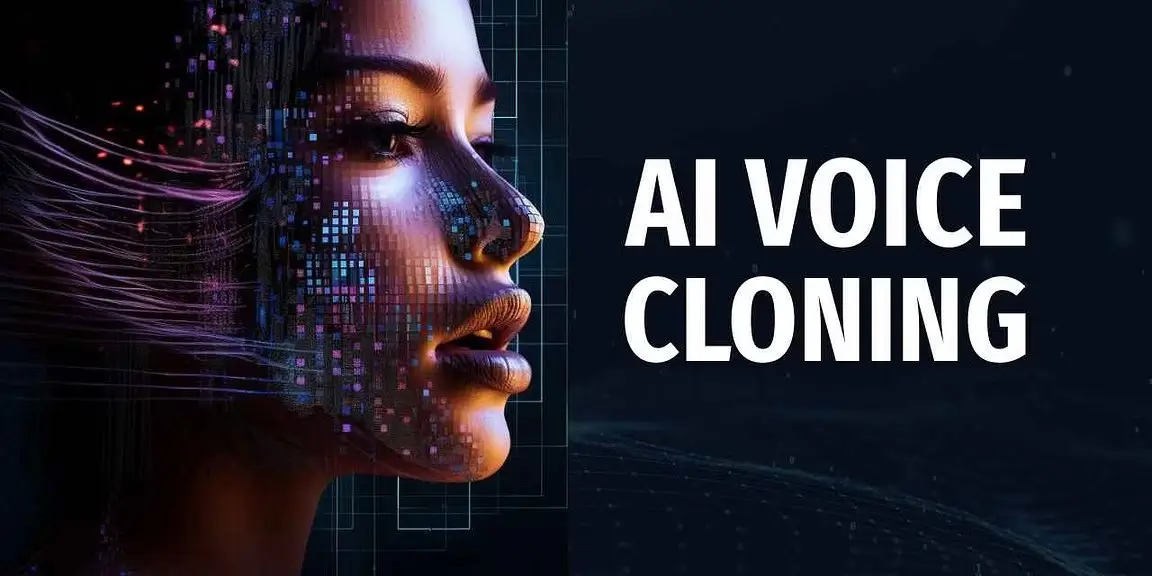Introduction
Since their introduction, digital assistants have evolved significantly, revolutionizing how we engage with technology. From simple voice requests to personalized responses, AI developments, notably in the field of voice cloning, have fueled the evolution of digital assistants. In this essay, we’ll look at the evolution of digital assistants, with a focus on how AI voice cloning has shaped their development.
The early days of digital assistants were characterized by limited capability and a lack of natural language comprehension. However, with the introduction of artificial intelligence, digital assistants like as Siri, Google Assistant, and Alexa have grown more intuitive and user-friendly. These assistants can now understand and respond to normal language, making them valuable tools in our daily lives. Voice cloning technology has expanded the capabilities of digital assistants, allowing them to accurately duplicate human voice patterns and tones. This has made interactions with digital assistants more personal and engaging, resulting in a more seamless integration of technology into our daily lives.
The Early Days
The early days of digital assistants were distinguished by their simplicity, with basic voice-activated devices capable of doing simple tasks such as setting reminders and sending messages. However, the functionality of these early assistants was restricted, as they were unable to interpret normal language. Despite their limitations, they paved the way for future advances in AI and voice recognition technologies, resulting in the sophisticated digital assistants we have today.
Enter AI
The emergence of artificial intelligence marks a watershed moment in the growth of digital assistants. AI-powered assistants such as Siri, Google Assistant, and Alexa can recognize and respond to natural language, making them more intuitive and user-friendly. These assistants used complex algorithms to process information and offer appropriate responses, laying the groundwork for future advances in voice cloning.
Voice Cloning
speech cloning is a subset of artificial intelligence that uses deep learning algorithms to replicate a person’s speech. This technology has greatly improved the capabilities of digital assistants, allowing them to mimic human voice patterns and tones with astonishing accuracy. AI voice cloning has made digital assistants more personalized and engaging, resulting in a more natural relationship between users.
The Impact of Voice Cloning
The integration of AI voice cloning into digital assistants has had a significant influence on a variety of sectors. In customer service, for example, voice cloning has enabled firms to construct more lifelike chatbots that can answer client questions and provide support. In the entertainment industry, voice cloning has been utilized to replicate the voices of departed performers for film projects, generating ethical concerns about the use of AI in media.
Voice Cloning in Digital Assistants
Voice cloning technology has dramatically improved the user experience for digital assistants. Digital assistants can now provide more personalized and engaging interactions by replicating a person’s speech with AI algorithms. This has transformed them into virtual companions with whom users may connect on a more human level, rather than just tools for fulfilling tasks.
One of the primary advantages of voice cloning in digital assistants is its capacity to increase accessibility. Individuals with speech difficulties or disabilities can benefit greatly from having a digital assistant who understands and responds in their own voice. Voice cloning technology can also be utilised to preserve loved ones’ voices, allowing them to communicate with virtual replicas of deceased friends or family members.
Another area in which voice cloning has made tremendous progress is language translation. Voice cloning allows digital assistants to translate spoken phrases into different languages while sounding natural and real. This has made communication across language barriers simpler and more fluid.
Challenges and Future Prospects
Despite its progress, voice cloning still faces ethical problems regarding privacy and identity theft. However, ongoing AI research and development promise to overcome these difficulties while also improving the capabilities of digital assistants. Future developments in voice cloning may allow assistants to mimic not only voices but even emotions, making interactions even more human-like.
Looking ahead, the future of voice cloning in digital assistants is full with opportunities. As AI advances, we should expect to witness more lifelike and intelligent interactions. Voice cloning may ultimately allow digital assistants to hold conversations that are indistinguishable from those with real humans, offering up a plethora of new uses and possibilities.
Conclusion
Advances in AI, notably voice cloning, have affected the evolution of digital assistants. From simple voice commands to lifelike interactions, digital assistants have become an essential part of our daily lives. As technology advances, we should expect even more exciting discoveries in AI voice cloning, blurring the distinction between human and machine contact.
In conclusion, voice cloning has had a substantial impact on the evolution of digital assistants. From basic voice commands to personalized interactions, voice cloning technology has changed the way we interact with technology. As this technology progresses, we can anticipate even more fascinating advances in the realm of AI voice cloning, further blurring the distinctions between human and machine interaction.





